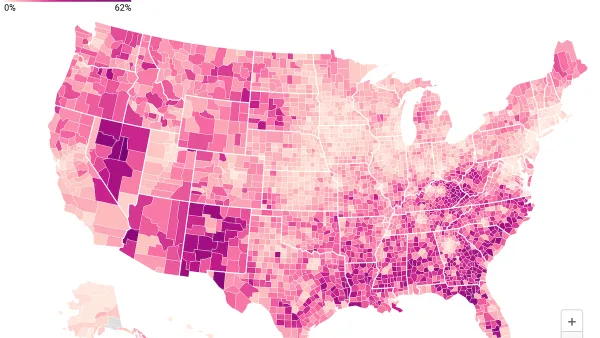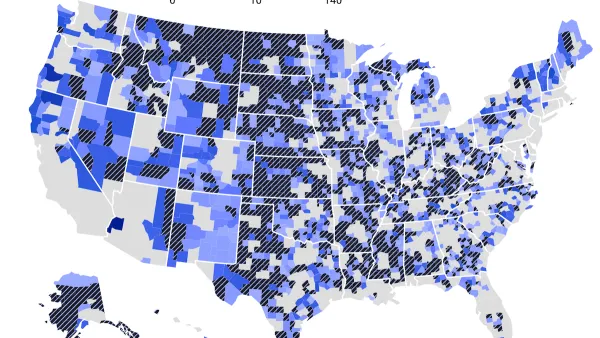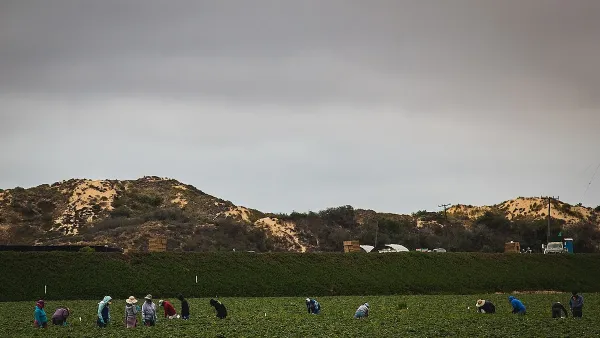Aaron Renn responds to a column in the Kansas City Star lamenting the political inequities of Kansas City's urban setting relative to nearby rural communities.
Jason Hancock wrote the original column for the Kansas City Star. The refrain will be familiar: "Rural areas hold political clout well beyond their numbers, winning regularly on the issues and in the division of tax dollars."
Renn himself acknowledges that he's written on the subject before, but he seems particularly lively here: "Who could argue against making things better? It seems absurd. So why is it so hard to make progress?"
Renn identifies a number of reasons for the divide, and also suggests a few paths for a wider prosperity—one that benefits more of the places that have so far been not benefitted by the rising tides of globalization. "What’s needed is a new bargain in our states and regions. Larger metros and thriving regions will be given the authority, tools and financing they need to improve themselves and meet the demands of today’s globalized, talent-based economy. In return, they will be expected not just to send back tax “remittances” to the rest of their state, but also to deploy some of their intellectual and policy resources toward the problems facing the left behind areas."
FULL STORY: The Urban vs. Rural Wars Within States

Planetizen Federal Action Tracker
A weekly monitor of how Trump’s orders and actions are impacting planners and planning in America.

Restaurant Patios Were a Pandemic Win — Why Were They so Hard to Keep?
Social distancing requirements and changes in travel patterns prompted cities to pilot new uses for street and sidewalk space. Then it got complicated.

Map: Where Senate Republicans Want to Sell Your Public Lands
For public land advocates, the Senate Republicans’ proposal to sell millions of acres of public land in the West is “the biggest fight of their careers.”

Maui's Vacation Rental Debate Turns Ugly
Verbal attacks, misinformation campaigns and fistfights plague a high-stakes debate to convert thousands of vacation rentals into long-term housing.

San Francisco Suspends Traffic Calming Amidst Record Deaths
Citing “a challenging fiscal landscape,” the city will cease the program on the heels of 42 traffic deaths, including 24 pedestrians.

California Homeless Arrests, Citations Spike After Ruling
An investigation reveals that anti-homeless actions increased up to 500% after Grants Pass v. Johnson — even in cities claiming no policy change.
Urban Design for Planners 1: Software Tools
This six-course series explores essential urban design concepts using open source software and equips planners with the tools they need to participate fully in the urban design process.
Planning for Universal Design
Learn the tools for implementing Universal Design in planning regulations.
Heyer Gruel & Associates PA
JM Goldson LLC
Custer County Colorado
City of Camden Redevelopment Agency
City of Astoria
Transportation Research & Education Center (TREC) at Portland State University
Camden Redevelopment Agency
City of Claremont
Municipality of Princeton (NJ)





























